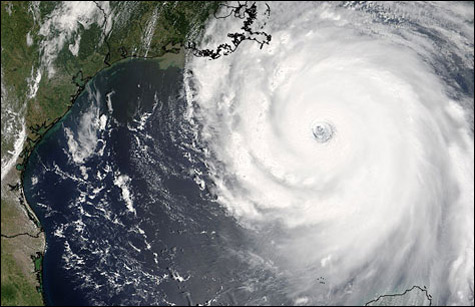
WEATHERING THE STORM: Though the current scene in Haiti recalls Hurricane Katrina, most political foes have yet to criticize Obama's quick response to the earthquake. |
From the first days after the earthquake struck Haiti — long before anyone knew how dire the situation was, let alone how the US government would respond — pundits were wagging their tongues about the potential political implications. A poor response, they said, would invite comparisons to the Bush administration's bungled handling of Hurricane Katrina in New Orleans, sapping confidence in President Barack Obama's competence, and further eroding the notion that "change" had swept through Washington's institutions.The speculation was inevitable, given the very real political fallout of Katrina (which indelibly marked George W. Bush as incompetent and uncaring) and the incessant hunger of the 24-hour news cycle.
But Haiti is, of course, not a US state, and Obama needn't worry that future elections will be altered even a jot by American voters' judgment of our efforts to help the troubled Caribbean nation's rescue and recovery effort.
At least, not if we go by past world disasters, which — if they grab Americans' attention at all — fade quickly from the public consciousness.
Consider that this country was gripped by the 2004 Indian Ocean tsunami, which killed nearly a quarter-million people; today it's unlikely that most Americans could name the two countries that suffered the bulk of those deaths. The Kashmir earthquake of 2005 is entirely forgotten, even though it killed some 80,000 in a country critical to our foreign policy. And does anybody in the US even remember 2008's Cyclone Nargis, which briefly enlightened Americans to the controversy over whether to call the country it afflicted Burma or Myanmar?
Some are insisting that Haiti's proximity to the US makes this different. Don't count on it.
In fact, the most attention-getting comments about the government's response in Haiti have come from blowhards who clearly care nothing about who lives or dies in that country.
First it was Rush Limbaugh, who complained on his radio program about the use of his tax dollars to pay for Haiti relief. He later accused Obama of helping Haiti as a ploy to "burnish [his] credibility with the black community."
Glenn Beck soon chimed in on his own radio program, alleging that Obama was "dividing the nation" by choosing to respond rapidly to Haiti, but not to Afghanistan, the Fort Hood attack, or the Christmas Day bomber.
(And never mind evangelist leader Pat Robertson's grotesque suggestion that the earthquake was payback for a 200-year-old Haitian deal with Satan.)
These two attention-demanding public performers spouted these controversial views just after it was announced that Fox News had signed Sarah Palin to an on-air contract. Limbaugh and Beck were doing what class clowns do when they feel threatened by the new kid stealing the spotlight; their appalling punditry was the talk-radio equivalent of underarm-fart noises.